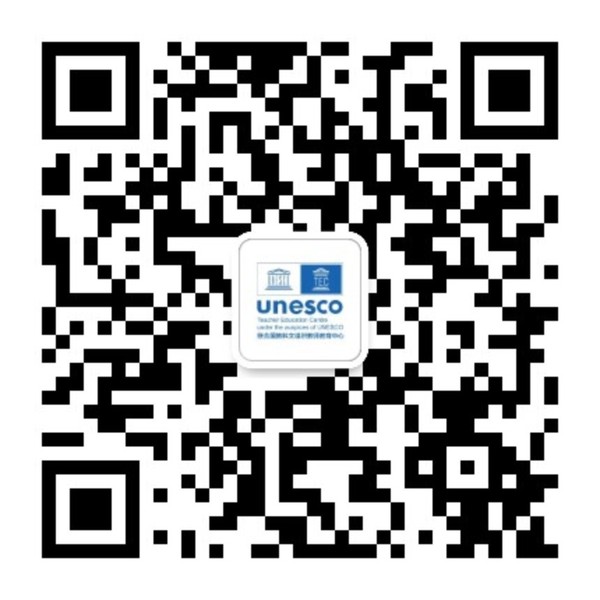On the afternoon of July 14, 2025, the second batch of the International STEM Education Volunteer Team from the UNESCO Teacher Education Centre (UNESCO TEC) arrived in Zanzibar, Tanzania, officially kicking off a 15-day mission of educational exchange and cooperation. The volunteer team comprises diverse professionals from frontline education and research fields, including Dr. Shen Yihua, a STEM education expert and China-Tanzania Project Coordinator; technical expert Wang Hao; mathematics teachers Huang Heping and Gu Yuanhao from the International Division of Fudan University Affiliated High School; Dr. Fu Jing, a mathematics teacher from Shanghai Experimental School; as well as doctoral student Zhang Yunji, master’s students Wan Junkai and Shi Yujia, and undergraduate students Gong Yushu and Yang Mingxi from Shanghai Normal University. Guided by the original aspiration and mission of promoting China-Tanzania mathematics education cooperation and advancing the joint development and sharing of educational resources, team members immediately engaged in teaching research, curriculum preparation, and local exchanges upon arrival, actively contributing to mutual learning in education between the two countries.
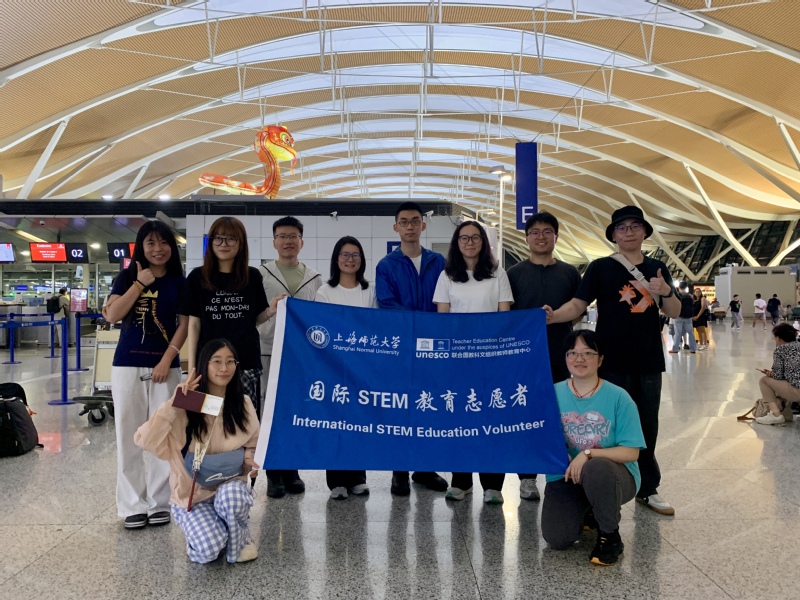
Volunteer Team Engages in In-depth Dialogue with Zanzibari Education Authorities on First Day, Focusing on Curriculum Reform and Educational Collaboration
On July 15, the volunteer team officially launched its first day of exchange activities in Zanzibar. In the morning, the team visited the Ministry of Education and Vocational Training, Zanzibar (MoEVT), where they were warmly received by local education officials.
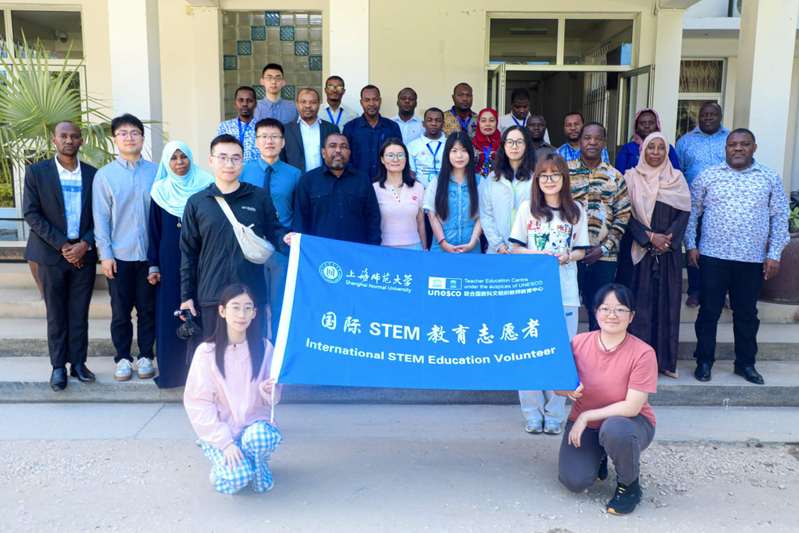
During the discussion, Mr. Abdalla Mussa, Executive Director of the Zanzibar Institute of Education, provided a systematic introduction to the overall structure of Zanzibar’s education system, plans for teacher workforce development, and key directions of current curriculum reform. Subsequently, Dr. Shen Yihua, STEM education expert and China-Tanzania Project Coordinator, delivered a comprehensive presentation on the Shanghai-Tanzania Mathematics Teacher Professional Development Program, covering its background, implementation goals, phased achievements, and specific arrangements for this volunteer service activity. Zhang Yunji, a doctoral student from Shanghai Normal University, focused on introducing the Teaching Research Group (TRG) mechanism in China’s basic education and shared the experience and models of TRG activities implemented by the first batch of the International STEM Education Volunteer Team in Tanzania.
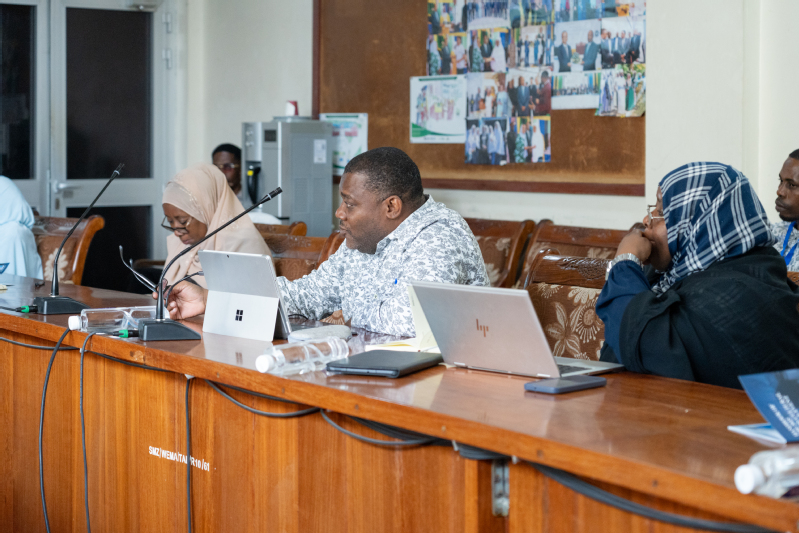
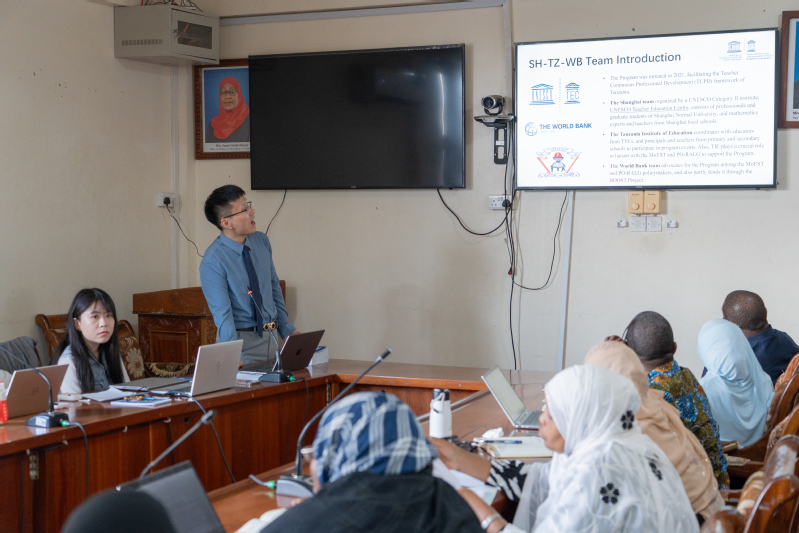
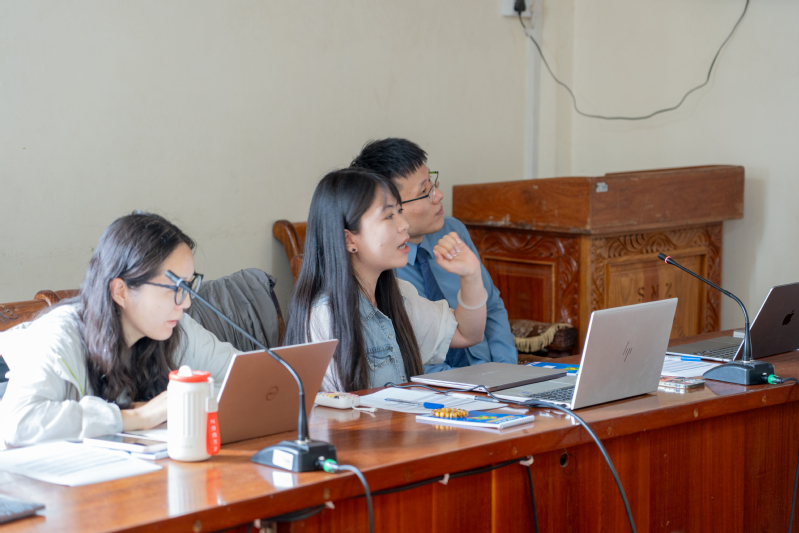
The discussion was lively, with both sides engaging in in-depth exchanges on curriculum reform, innovation in teaching methods, and other topics. The Tanzanian side highly praised the significance of this cooperation and expressed high expectations for the series of activities. Both parties agreed that they hope this exchange will promote in-depth integration of teachers from the two countries in terms of concepts, methods, and practices, and facilitate the solid implementation of educational cooperation.
First Day on Campus: Experiencing Zanzibari Mathematics Teaching Practices to Promote Mutual Learning in Education
On the afternoon of July 15, the volunteer team visited Dr. Samia Primary School for a campus tour and teaching observation. The principal warmly received the visiting team and provided a comprehensive introduction to the school’s teacher allocation, teaching facilities, and campus development. Students expressed their friendship and welcome to the Chinese volunteers with an enthusiastic welcome ceremony, creating a warm and lively atmosphere.
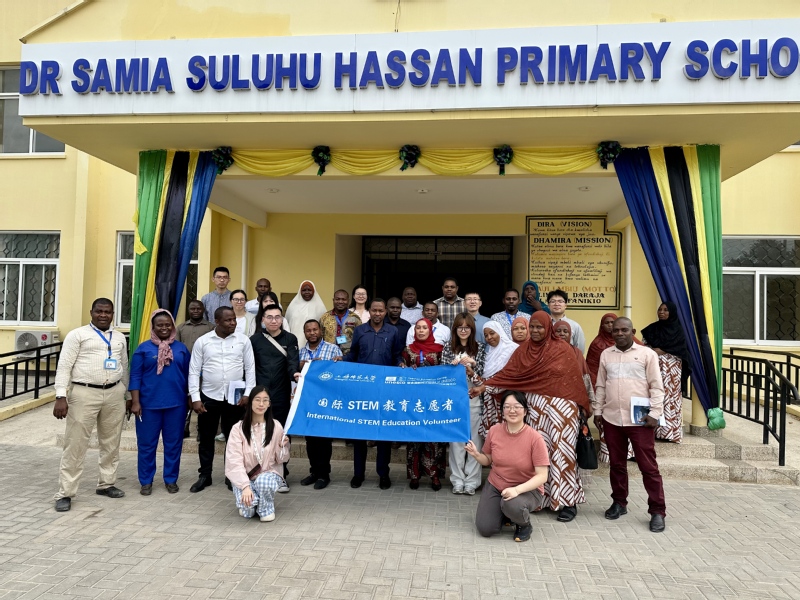
During the teaching observation session, Mr. Hafidh Ame Sheha, a mathematics teacher at Dr. Samia Primary School, presented a mathematics lesson themed Addition of Five-Digit Numbers, fully demonstrating the characteristics and practical wisdom of local teaching.
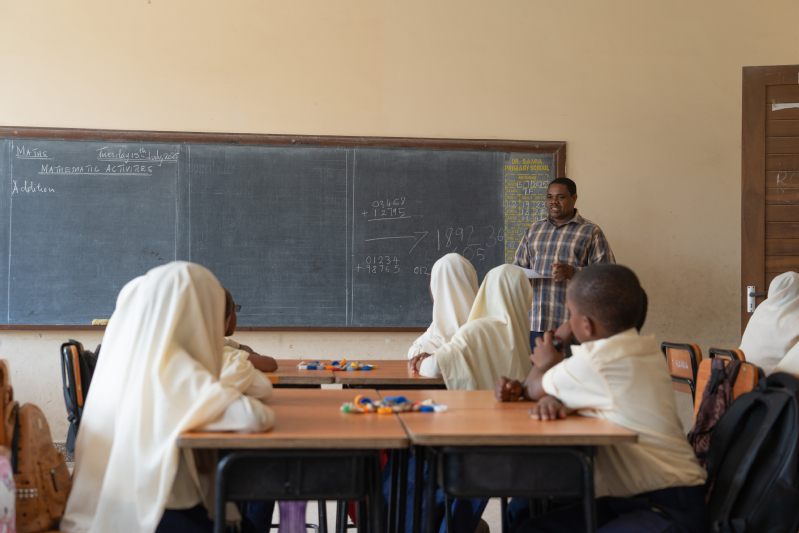
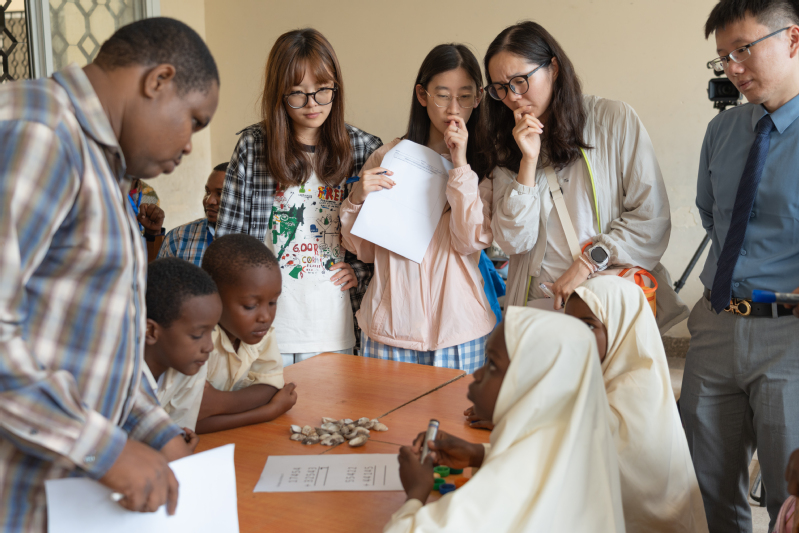
After the lesson, teachers from both sides conducted detailed discussions on the design of teaching tasks, organization of student activities, and effectiveness of classroom interaction. Combining their respective teaching experiences and cultural backgrounds, the participating teachers explored teaching approaches tailored to the needs of local students, actively sought integration of teaching methods and concepts, and promoted two-way exchange and sharing of educational wisdom.
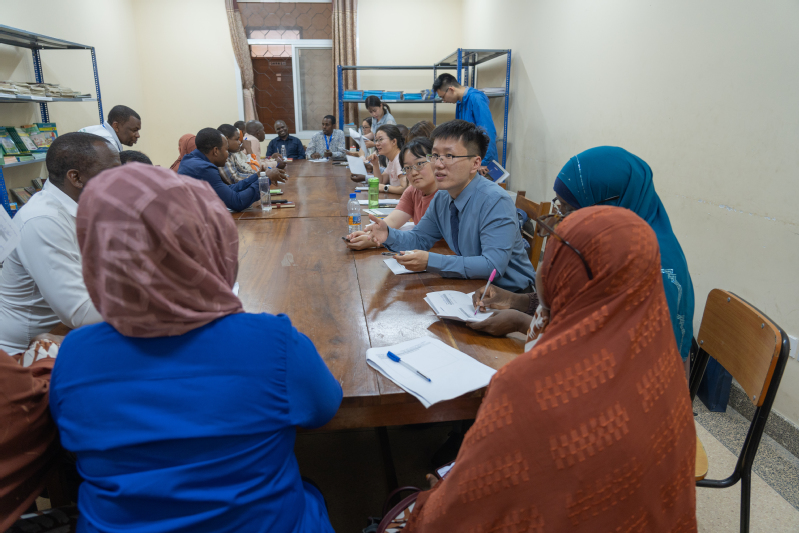
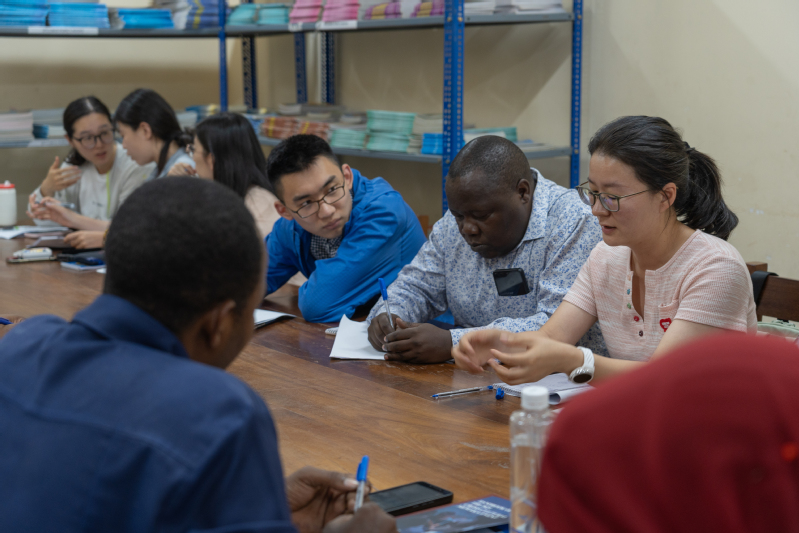
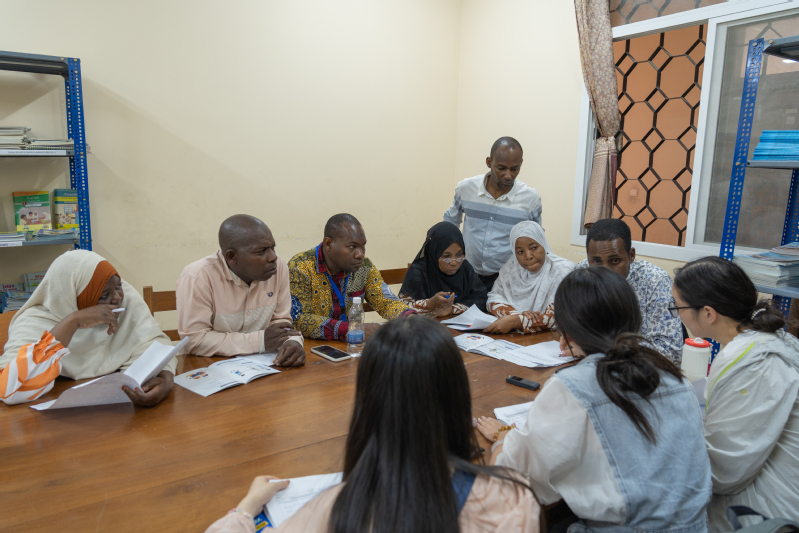
Volunteer Team Visits Five-Star Secondary School and Local Education Institute to Explore New Paths in Mathematics Teaching
On July 16, the volunteer team visited Tumekuja Secondary School for teaching exchange activities. At the beginning of the event, the principal gave a systematic introduction to the volunteer team on the school’s development history, teacher structure, and the integration of information technology in teaching, helping team members gain a comprehensive understanding of the school’s educational philosophy and ecosystem, and laying a solid foundation for in-depth interaction and cooperation.
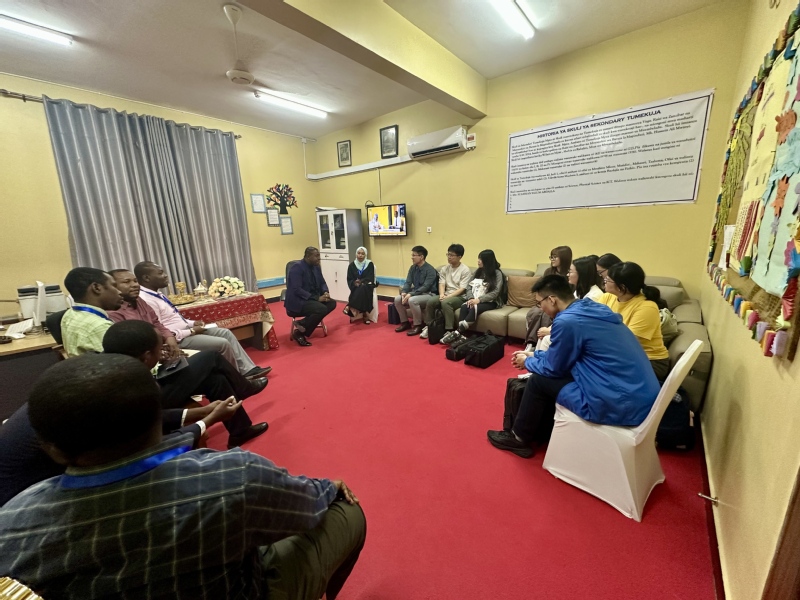
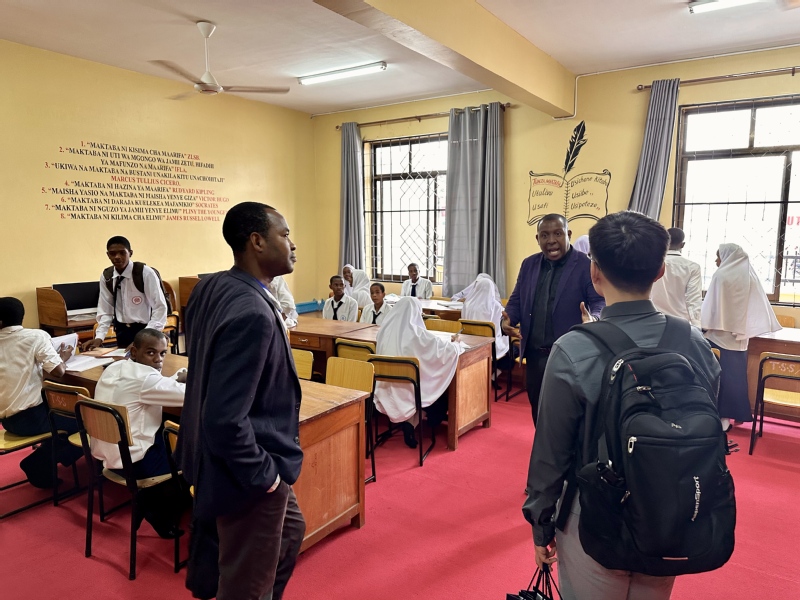
In the morning, Mr. Hafidh Ally Hamad, a mathematics teacher at Tumekuja Secondary School, taught a lesson titled Geometric Transformations: Rotations in the Smart Classroom. Through example explanations and classroom interactions, he guided students to understand the concept of rotation, demonstrating the local teacher’s ability in activity design and classroom organization.
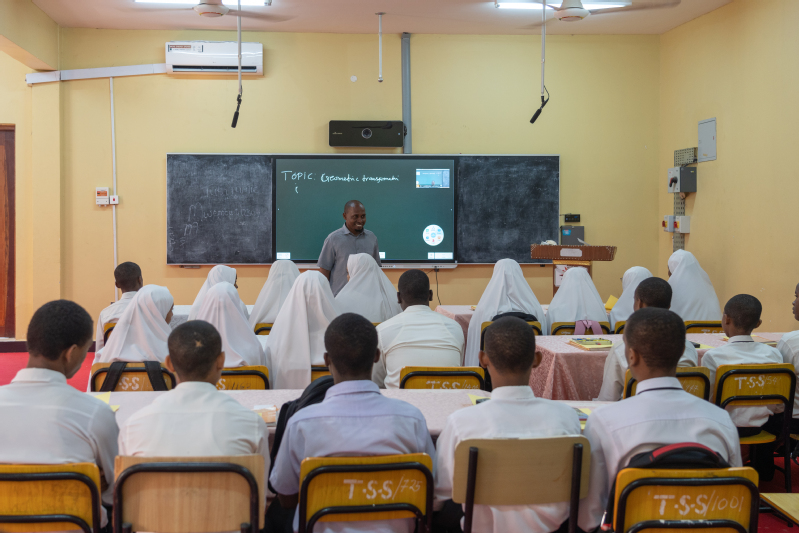
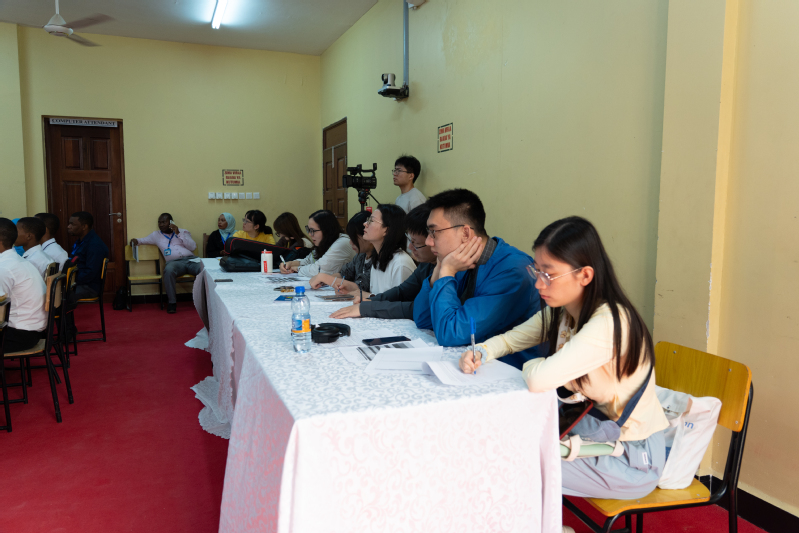
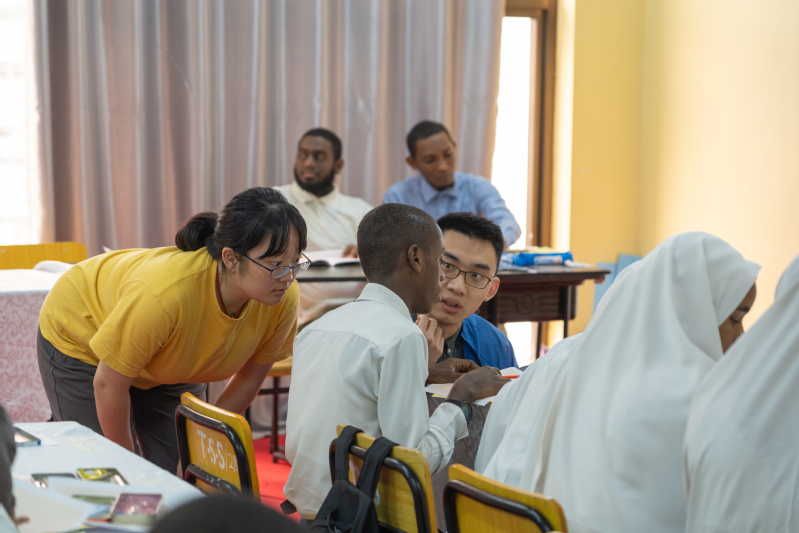
In the afternoon, the volunteer team visited the Zanzibar Institute of Education. Accompanied by Mr. Mussa, Executive Director of the Institute, members toured the office and curriculum development areas, gaining an in-depth understanding of its achievements in teacher training, curriculum reform, and teaching material development. Mr. Mussa stated that he hopes this exchange will inject new vitality into mathematics teaching in Zanzibar and promote the continuous development of local mathematics education. Dr. Shen Yihua also expressed her willingness to give full play to her professional advantages and contribute to improving local education quality.
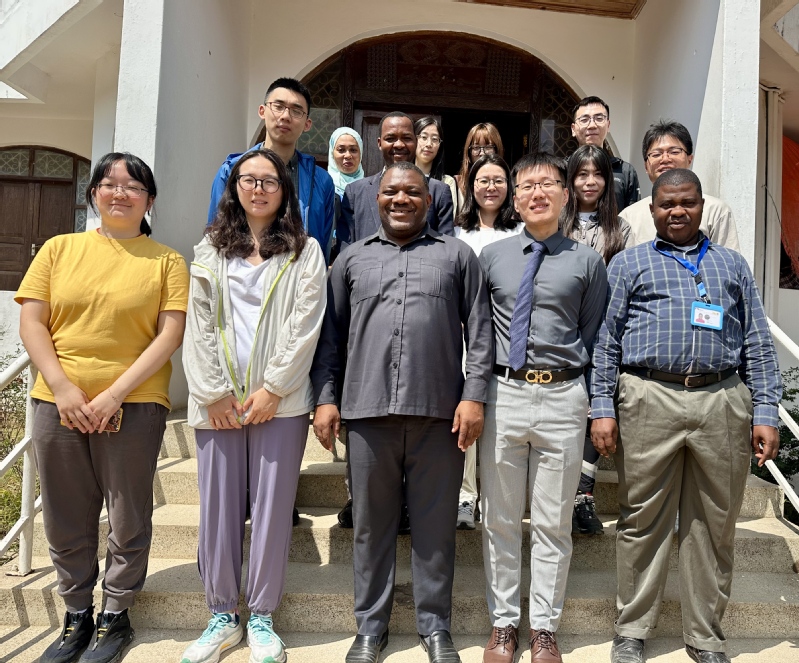
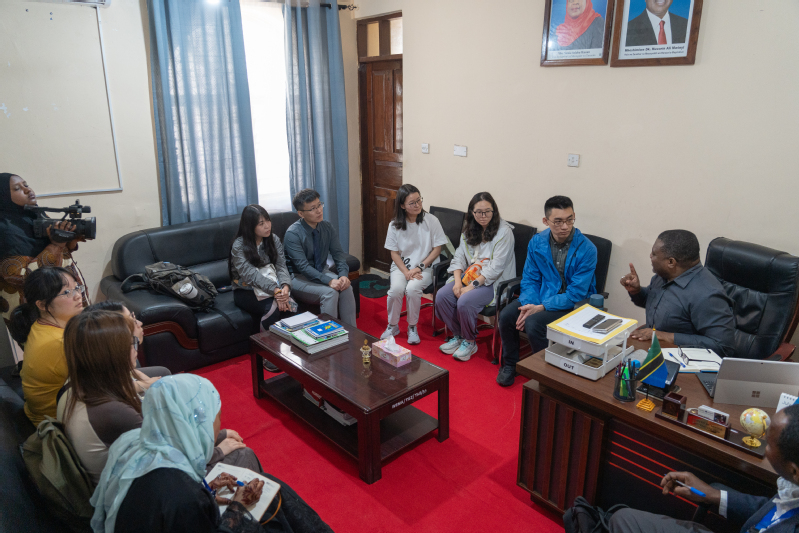
Later that day, the volunteer team revisited Tumekuja Secondary School, where Gu Yuanhao, a mathematics teacher from the International Division of Fudan University Affiliated High School, delivered a second lesson on Geometric Transformations: Rotations in the Smart Classroom. Making full use of the technical advantages of the Smart Classroom, Teacher Gu adopted diverse teaching methods, organically integrating the explanation of rotation concepts with visual demonstrations, vividly showcasing the systematicness and innovation of mathematics teaching in Shanghai. The classroom atmosphere was lively, with students actively interacting, demonstrating strong learning interest and good thinking participation.
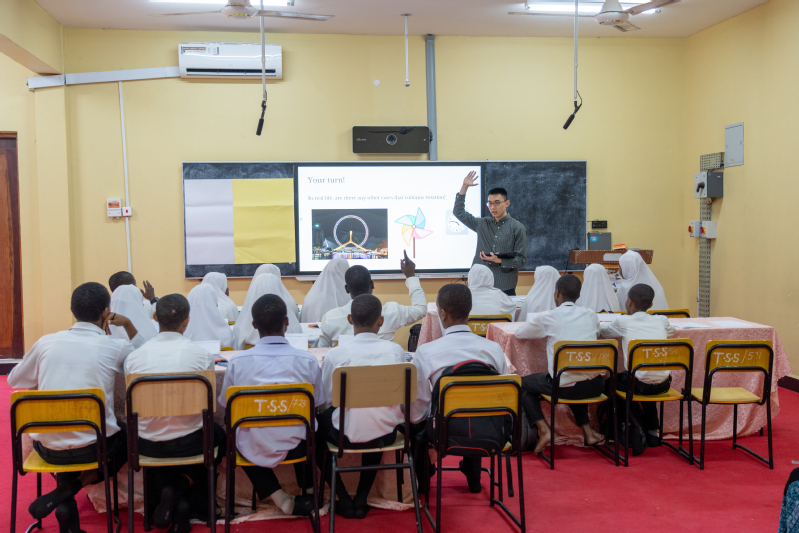
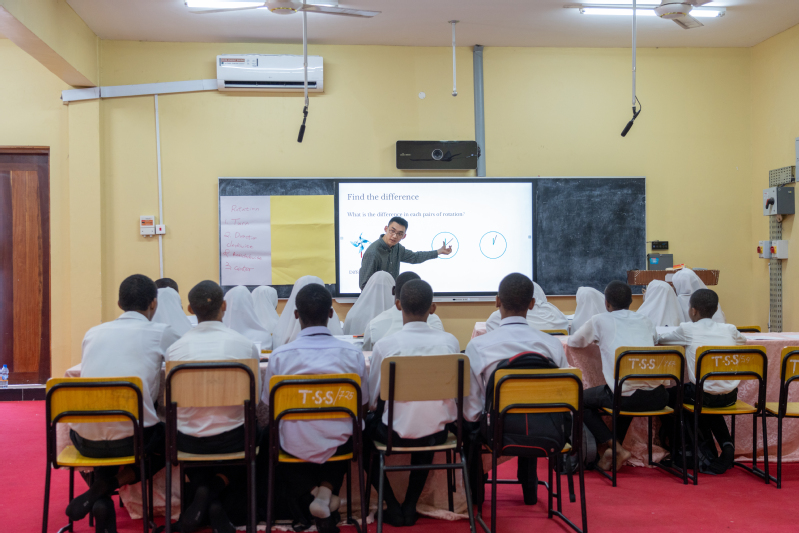
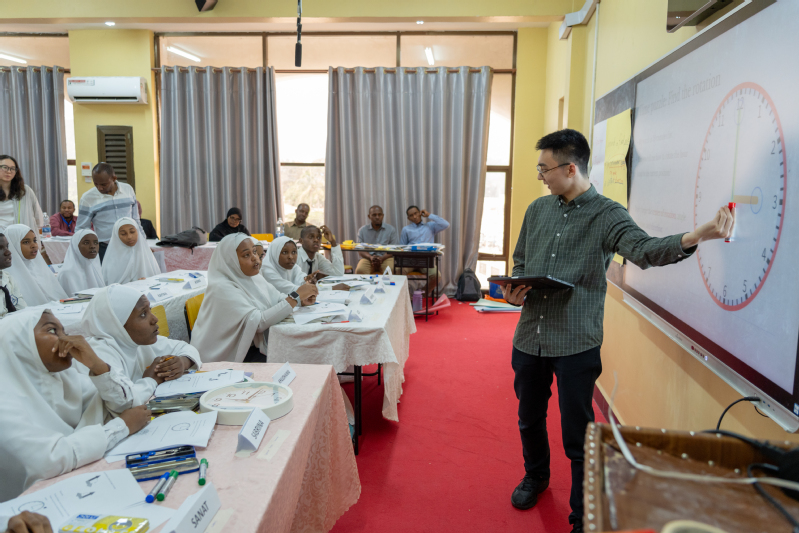
After the lesson, the two teachers respectively gave teaching explanations and reflections. On-site teachers actively asked questions and engaged in in-depth exchanges on teaching design and implementation details based on the classroom observation checklist, providing new ideas for cross-cultural teaching of geometric transformations.
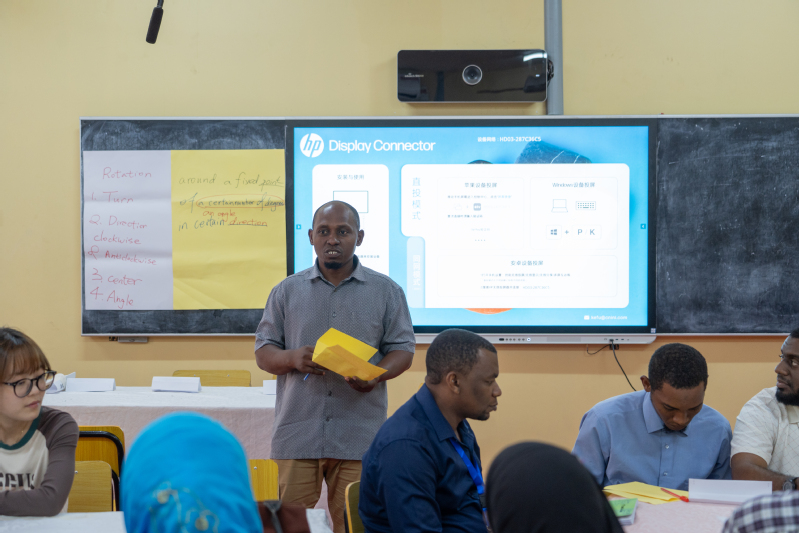
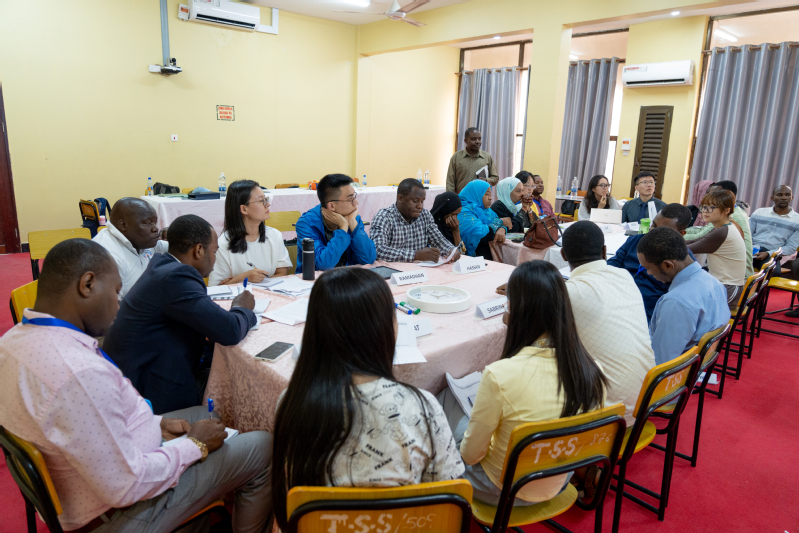
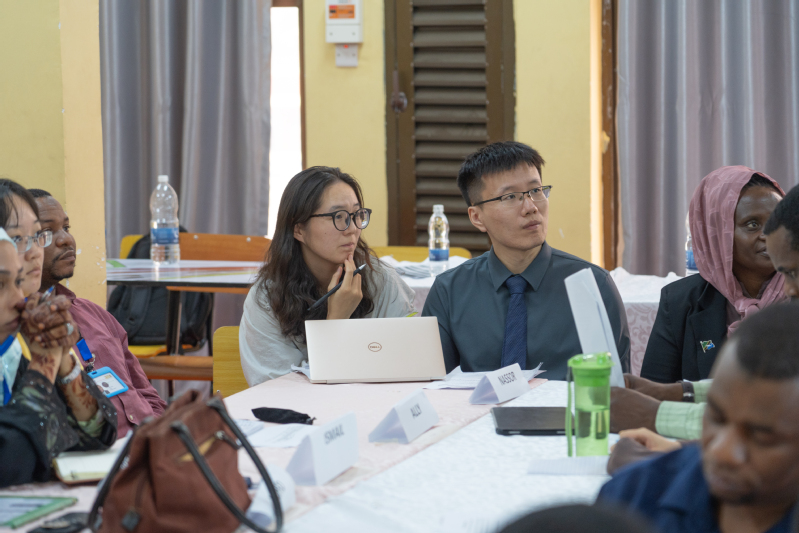
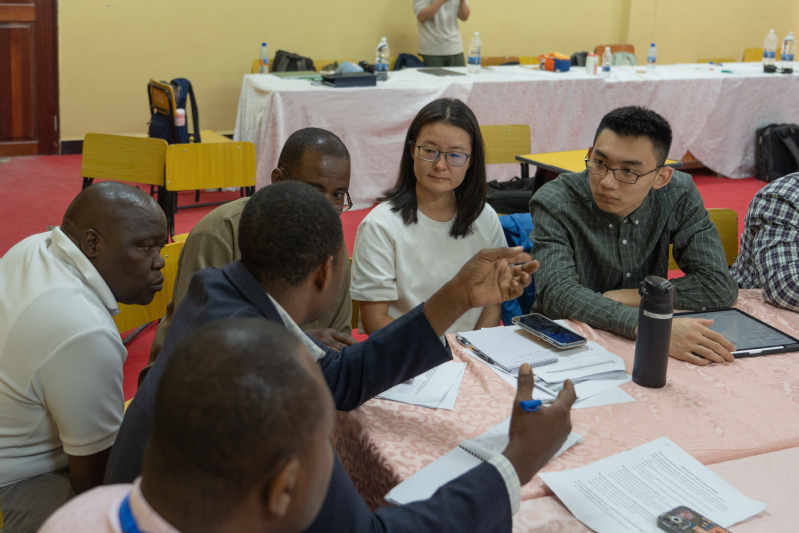
Volunteer Team Revisits Dr. Samia Primary School to Deepen China-Tanzania Mathematics Teaching Exchange with Addition of Five-Digit Numbers
On the morning of July 17, the volunteer team revisited Dr. Samia Primary School. Huang Heping, a mathematics teacher from the International Division of Fudan University Affiliated High School, delivered a demonstration lesson titled Addition of Five-Digit Numbers to the school’s students. Starting with scenarios such as purchasing fruits or books, the lesson used learning tools like small cubes for intuitive demonstrations, guiding students step by step to understand the concept of place value and master addition methods, effectively stimulating students’ learning interest and classroom participation.
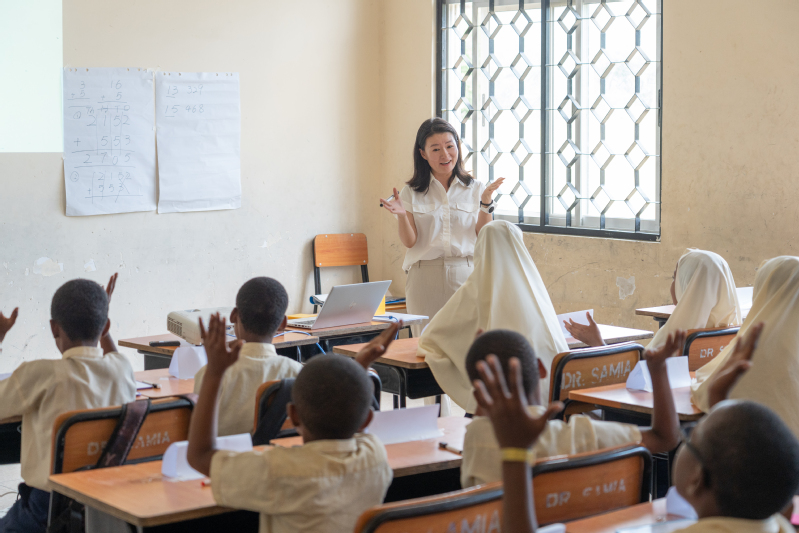
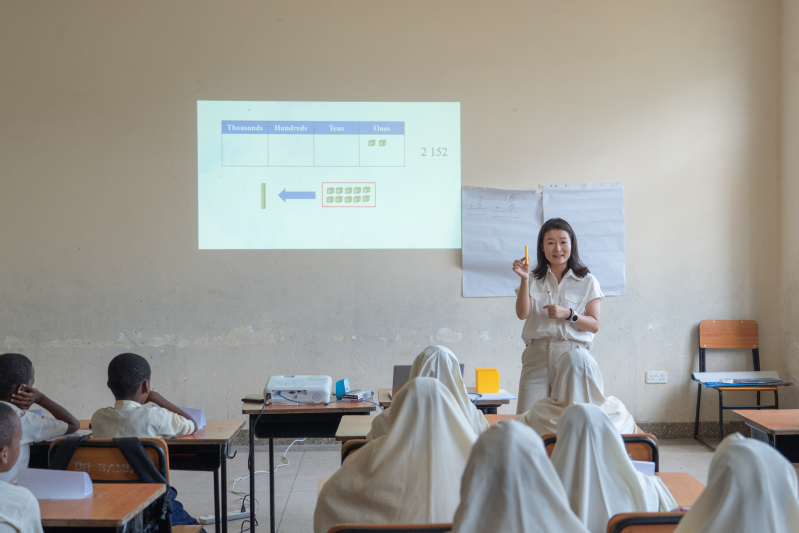
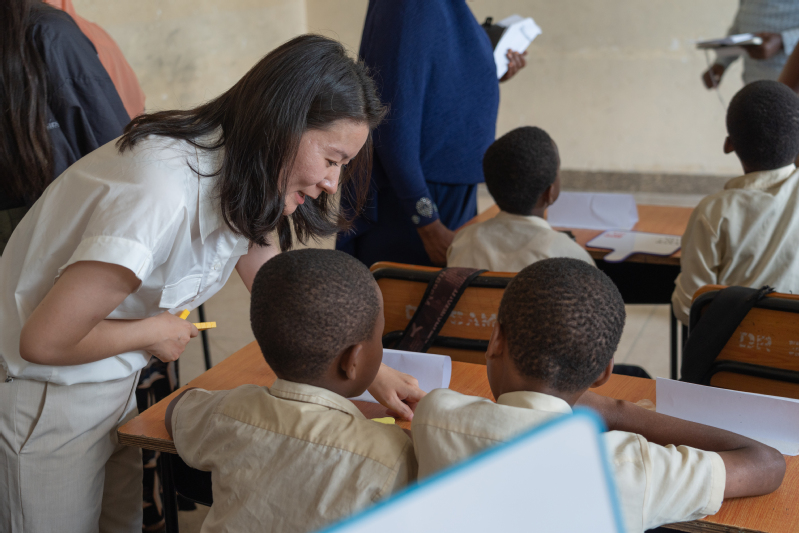
After the lesson, Chinese and Tanzanian teachers held in-depth exchanges on teaching methods, content presentation, and student participation. Volunteer teachers shared Shanghai’s practical experience in understanding of place value and cultivation of computational thinking in teaching, while Tanzanian teachers introduced local classroom strategies for helping students master large-number operations. Through the collision of ideas and mutual learning of experience, both sides explored feasible paths to improve the quality of mathematics teaching.
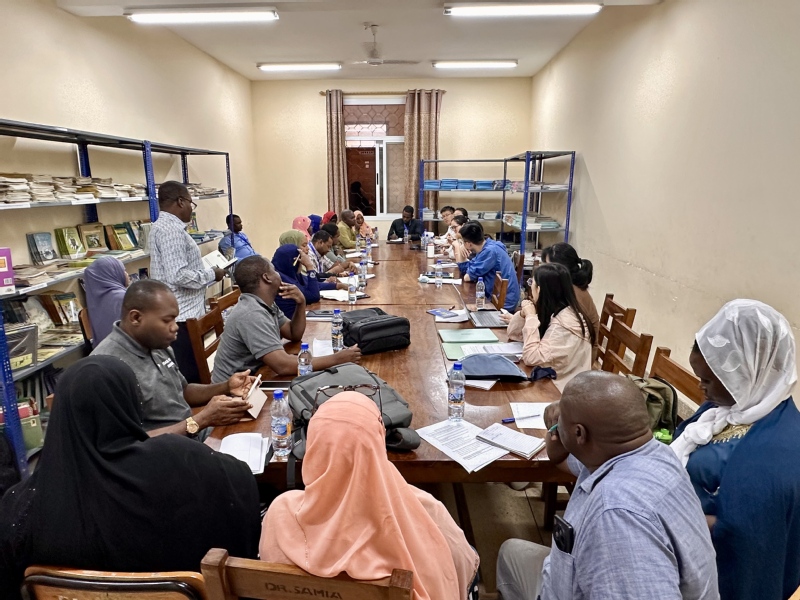
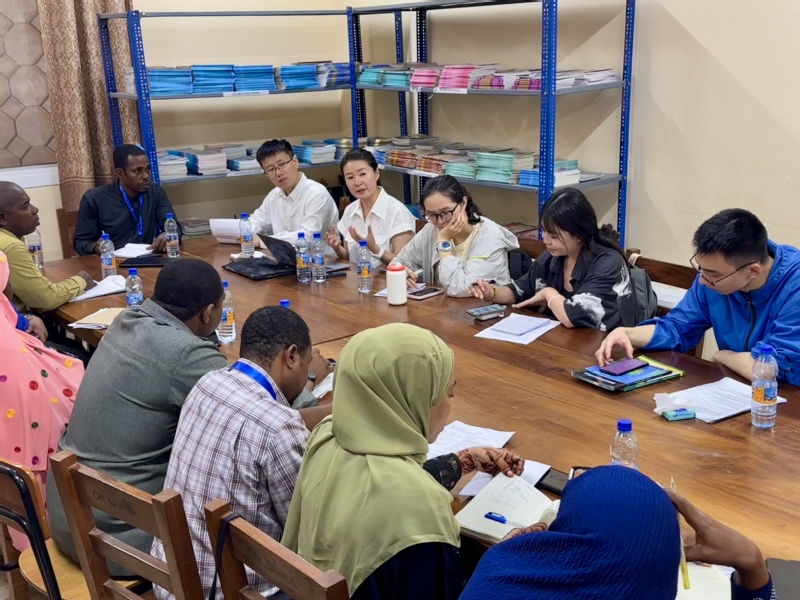
Over 100 Tanzanian Teachers Gather at Teacher Resource Center to Share Mathematics Teaching Experiences
After careful preparation and multiple teaching rehearsals, on the morning of July 18, Teacher Huang Heping delivered another public lesson on Addition of Five-Digit Numbers at the Kiembe Samaki Teacher Resource Center, attracting over 100 mathematics teachers from Zanzibar to observe and participate in discussions. By creating scenarios close to the lives of Zanzibari students, Teacher Huang guided students to actively participate in the class, consolidating their computational foundation and understanding the concept of place value through interesting practices. In the subsequent teaching sharing session, Ms. Zhang Yunji gave a special lecture on variation teaching. Combining specific and vivid teaching cases, she explained the definitions and connotations of mathematical tasks and variations in a simple and understandable way, and distributed teaching manuals to on-site teachers to help them fully grasp the concept of variation teaching and effectively transform it into classroom practice.
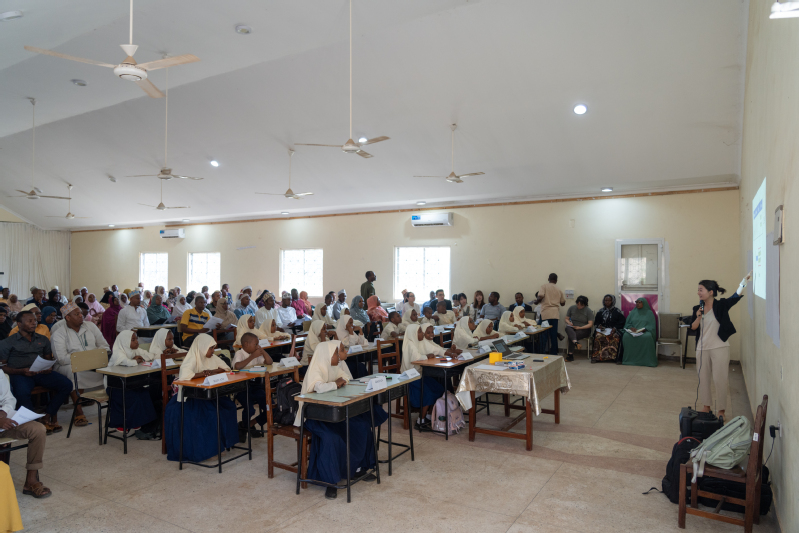
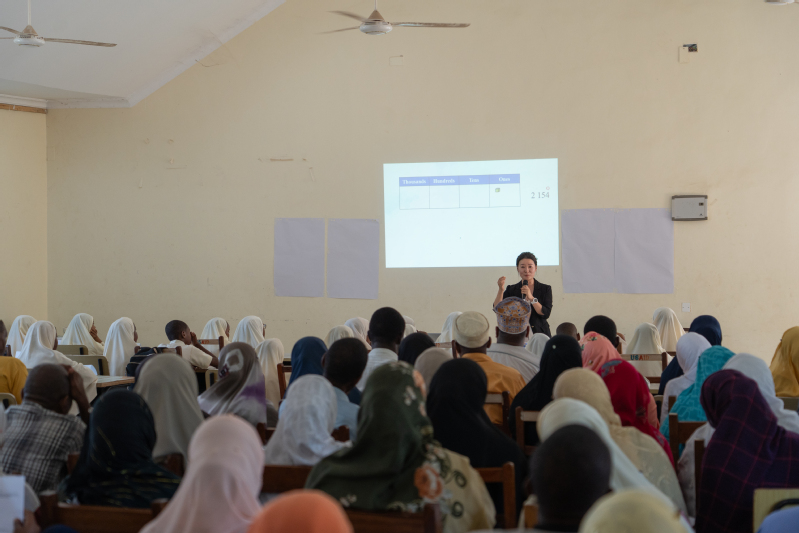
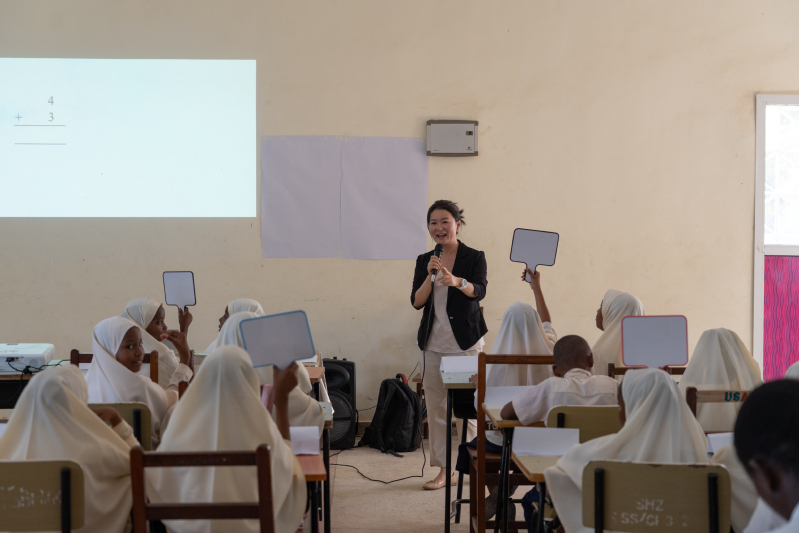
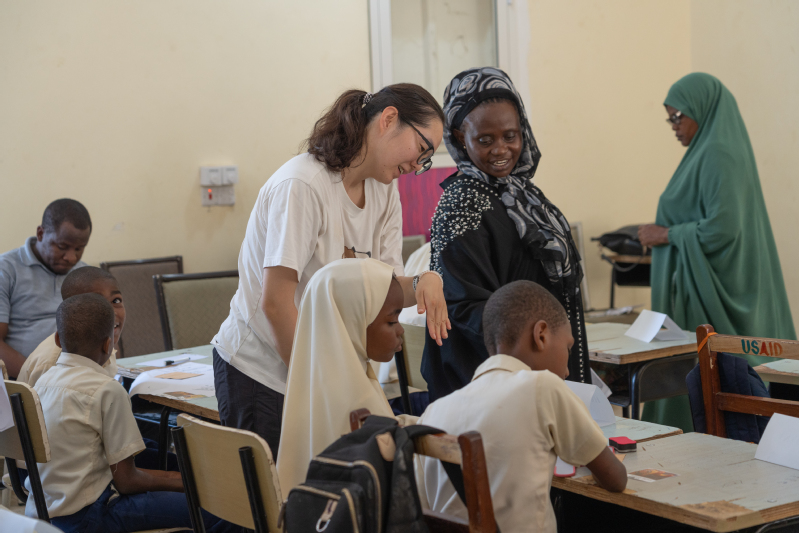
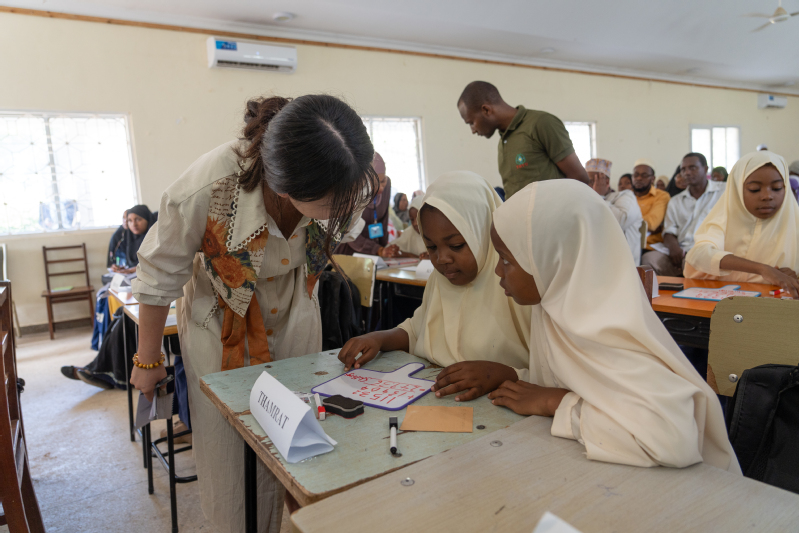
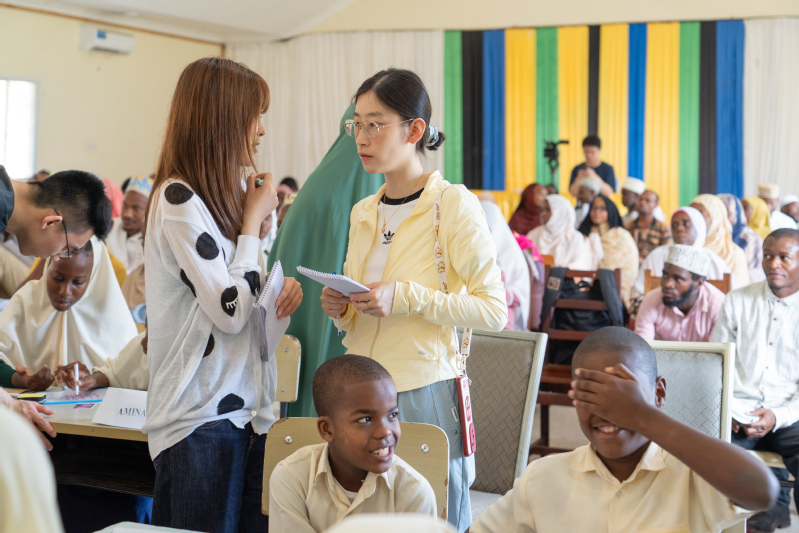
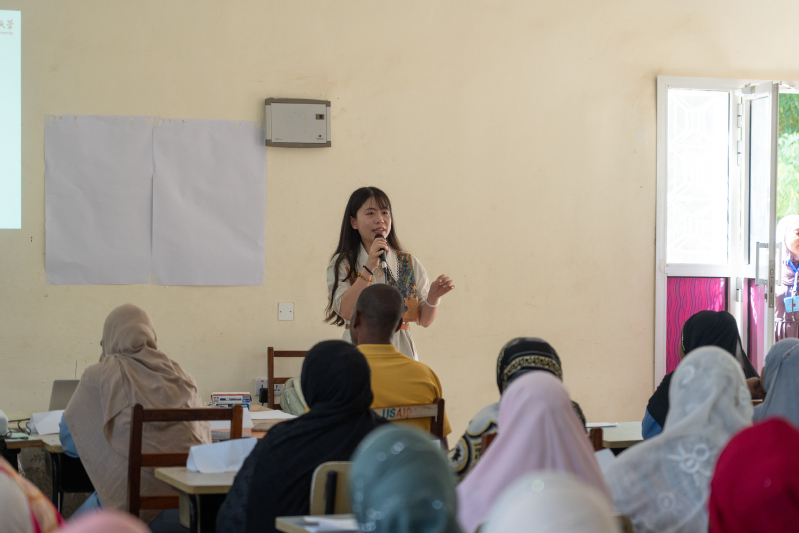
In the afternoon, Dr. Shen Yihua systematically introduced the procedures and core characteristics of China’s TRG activities to Zanzibari teachers participating in the public lesson, and explained in detail the use of the classroom observation checklist, helping teachers better understand and apply this tool for classroom observation and recording. In the subsequent teaching research session, Zanzibari teachers conducted group discussions and shared their lesson observation experiences under the guidance of the checklist. Different teaching perspectives collided in the exchange, involving both absorption and reference of Shanghai’s teaching experience, as well as reflection and innovation combined with local teaching and learning situation,promoting the achievement of the goal of joint research and common growth.
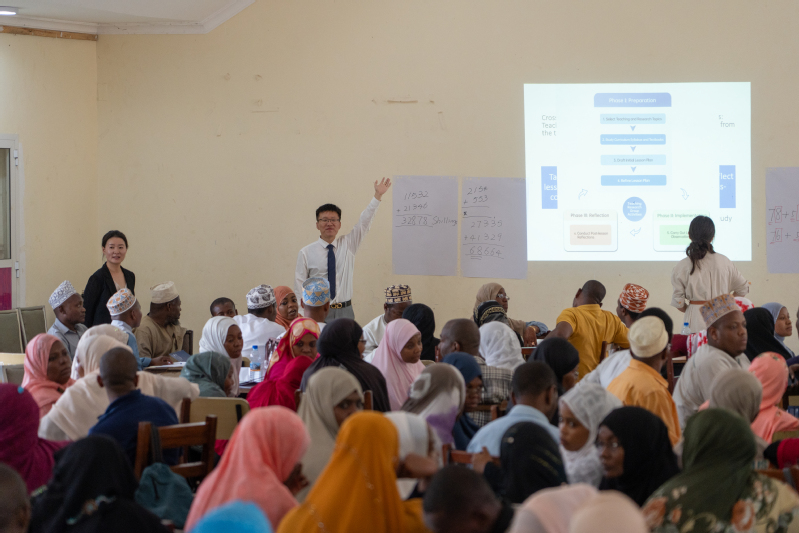
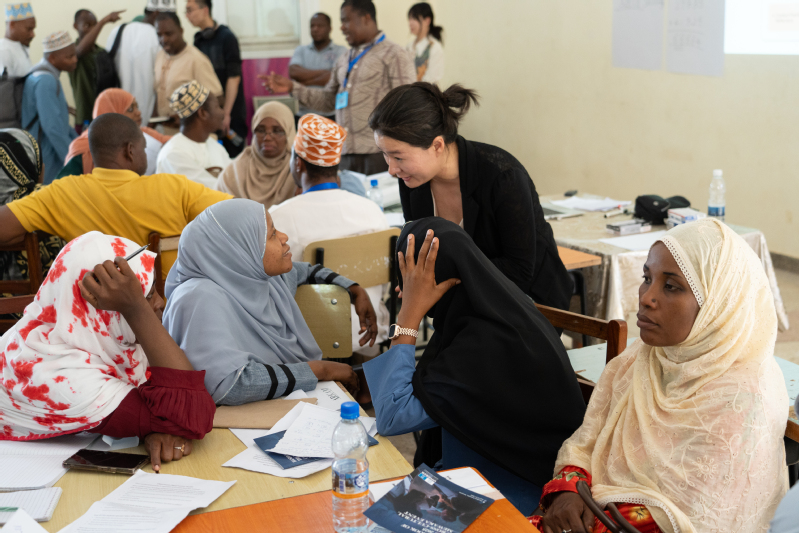
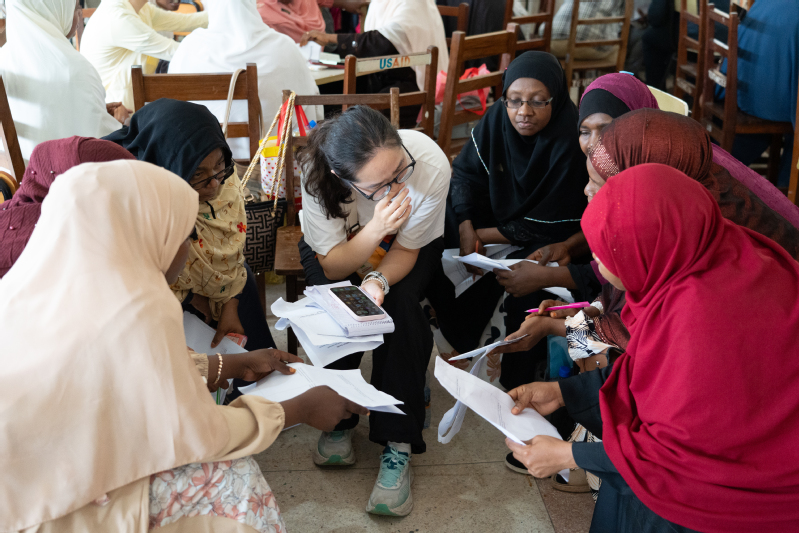
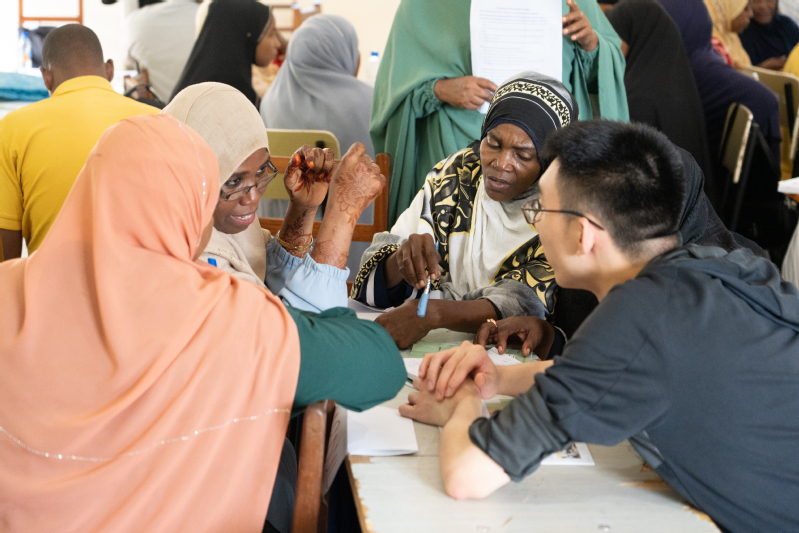
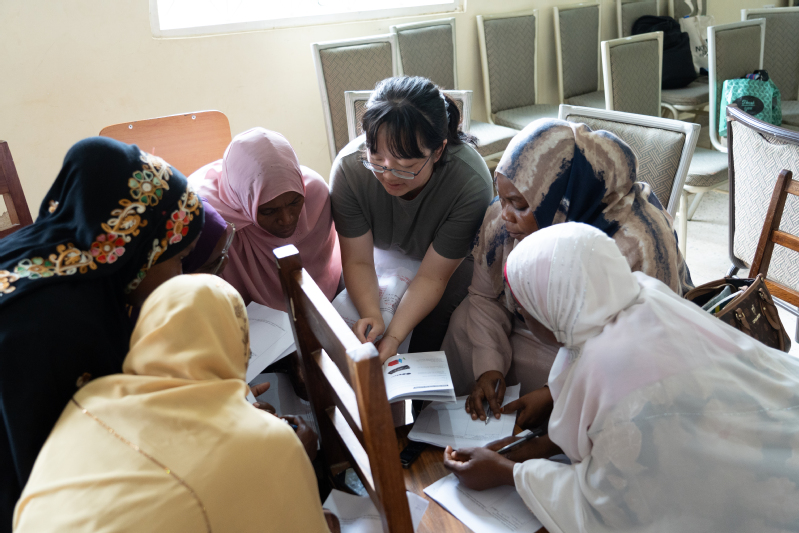
This trip to Zanzibar is an important practice in China-Tanzania educational cooperation. Looking ahead, it is expected that both sides will take this exchange as an opportunity to continuously advance the joint research and common growth cooperation model, deepen cooperation in teacher professional development, and jointly improve the teaching quality of mathematics classrooms in both countries. Through knowledge sharing and cultural interaction, China-Tanzania mathematics education exchanges will surely radiate more lasting and vigorous vitality.
In the next 10 days, the volunteer team will continue to carry out mathematics teaching activities in Zanzibar, and will travel to Enaboishu Primary School and Arusha Secondary School in the Arusha region to conduct a series of teaching exchanges, contributing to the development of mathematics education in Tanzania.




